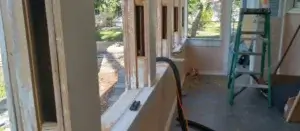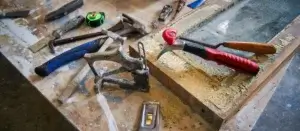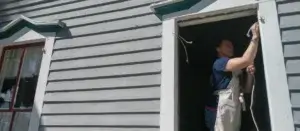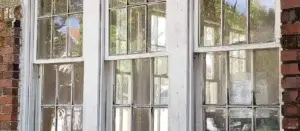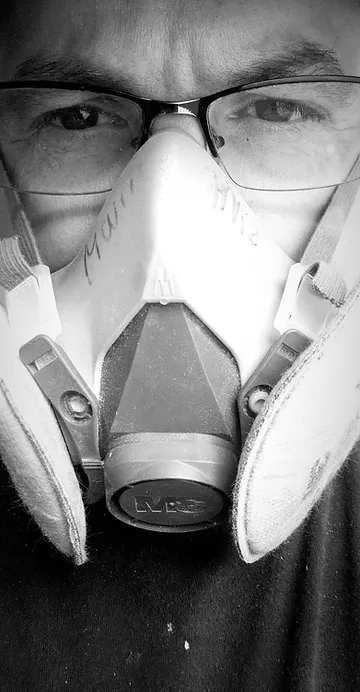
Three things you want to protect yourself against at work are dust, unnecessary work, and unnecessary client judgment.
Protect Yourself From Dust
Dust is something a lot of people ignore but it can cause big problems. Dust at your house is one thing. The dust outside and the places we go most of the time is relatively harmless. What is harmful about dust is when we are exposed to it every single day, day in and day out over long periods of time.
Those who have ever been inside a wood shop, or even sanded a board know those types of environments accumulate a lot of dust. It’s easy to imagine how that could be harmful in large quantities. There are times that I’m working in the shop I catch myself sneezing. Why? Probably because I’m not wearing a mask. My body is rejecting the dust accumulating inside of it. Sneezes and coughs are a message. Protect yourself.
Be mindful of lead.Even more important to consider about dust is when the dust contains lead. In large doses (like small doses accumulating over time) can do you a lot of harm. Even worse is not what lead does to you, its what lead does, perhaps unintentionally to the people we love. Do you have kids? Make sure you don’t take that lead dust home with you. Have a change of clothes ready. Wash your hands and face and wash well. Being negligent about your own safety doesn’t give you the right to be negligent of those around you, unintentional or not, especially kids.
Be mindful of lead. Even more important to consider about dust is when the dust contains lead. In large doses (like small doses accumulating over time) can do you a lot of harm. Even worse is not what lead does to you, its what lead does, perhaps unintentionally to the people we love. Do you have kids? Make sure you don’t take that lead dust home with you. Have a change of clothes ready. Wash your hands and face and wash well. Being negligent about your own safety doesn’t give you the right to be negligent of those around you, unintentional or not, especially kids.
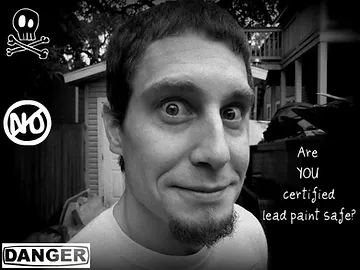
We also have to protect our clients against dust. They are counting on us to protect them and their interests, on top of the work they’ve hired us to do. It’s important that you take every step necessary to keep dust that we generate from accumulating in their house. We must keep ourselves clean, we must also keep our client’s houses clean. That is why the second we walk in the door from the very first time that we arrive the first thing that we will do is set up plastic containment around our work areas, plastic over the furniture, coverings over their floors coverings over there outside anything else we can think of that would need to be covered it might be affected by dust.There are protocols we have in place to do this. Learn them and follow them. And protect yourself from dust.
Protect Yourself from Unnecessary Work
The second thing you need to protect yourself against at work, is unnecessary work. How many times are we not paying attention or our mind is on something else, that we enter the work in a way that creates unnecessary work for ourselves?
Work with purpose and with care. For example the way that you take the window stops off needs to be done in such a way that you protect the window stop from mindless damage and scarring that would need to be repaired unnecessarily in the future. It might be that you get in a hurry and you try to pull the sash out too fast and break the glass. Another moment of carelessness that lead to unnecessary work.
So when you show up to work, show up to work and really show up. Have your head completely in the game and be aware of what you’re doing at all times so that you’re not creating unnecessary damage and unnecessary work for yourself. You will pay for your ignorance in loss of time at the least, or the sacrifice of performance or polish or both.
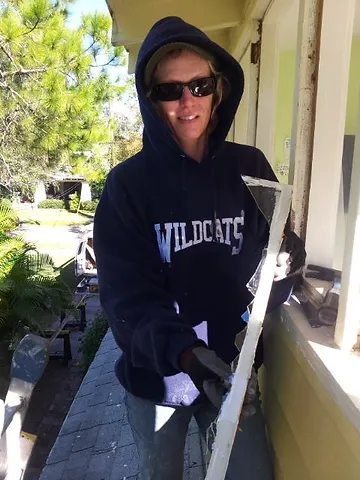
Protect Yourself from Unnecessary Client Judgment
The last thing you need to protect yourself against and really it’s the first thing, is unnecessary client judgment. We all know that we shouldn’t judge, we also all know that we all do it.
Put yourself in the client’s shoes. We are not the first contractor they’ve seen, and many of the contractors that have come before us have influenced the client to have a negative attitude to
wards people like ourselves. So the deck is already stacked against you. Clients have certain expectations about what people like us, (in their mind, Construction workers rather than Artisans), are like.
They’ve had a lot of bad experiences and immediately they’re gonna be wondering if you’re gonna be another one of those bad experiences. Often times protecting yourself against unnecessary client judgment is an uphill battle that isn’t necessarily your fault. But there are things that you can do to position yourself in the best possible light upfront.
Start off with your appearance. It’s OK to be dirty by the end of the day. But at the beginning? You want to start off clean, clean body, clean clothes, smelling clean. Did you even brush your teeth? Does your work shirt look like it just came out of the hamper? Worse, does it smell like it came out of the hamper? How do you smell? Like a hobo? You do not want to smell like cigarette smoke. Do you not want to smell like alcohol from the night before. You don’t want to smell like you just took a bong hit in your car.

Do you really think that you can show up with a work shirt out of the hamper all wrinkled up smelling like weed, cigarettes, and alcohol and and the client’s not going to judge you? Shoot, your coworkers will probably judge you (and hopefully say something to you). Remember clients are judgmental and they will make judgments about you right or wrong, and they won’t even do it on purpose. But they will do it. You know this is true. You judge people too.
Arrive earlier than the agreed-upon start time. This will not only put you in the right frame of mind to begin the work, it will communicate to the client as well as your coworkers that you mean business and that you will do what you say.
Parking your car. When you park your car in the vicinity of the client’s house to go do the work, make sure that you aren’t parked illegally, or that you aren’t blocking their neighbors driveway. Be mindful of your clients relationship with their neighbors, and imagine in your mind the conversations their neighbors will have after you leave about where are you parked. Guard against the client having to field a complaint about you. You’ll hear about it.
Stay off the grass. And once you park in the proper place, do not under any circumstance walk across the grass. Do you think that this is your yard? You might feel all right about walking across your own yard, but you don’t know this client and you don’t know how they feel about you walking in their grass.
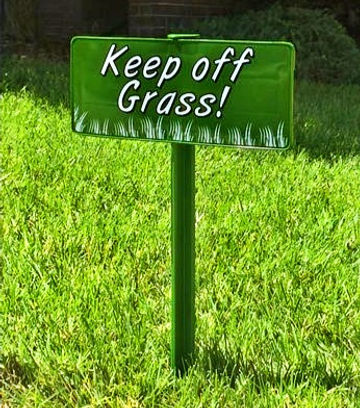
There might be a situation where are you indeed have to step on the grass to access a window or perform some work but even so you want to tread carefully and lightly and not leave trails in their grass. If there’s a place where you know that you have to work and it’s and you know that you have to step in the grass, it’s up to you to not trample it. One way to not trample their glass is to put a piece of plywood down a step on that instead of their grass. Imagine how many people came before you and trampled their grass. Put yourself in a position where you are protecting their grass rather than destroying it.
Approach the house with nice, folded tarps. When you walk up to the clients front door, have your nice neatly folded tarps with you. Or What, maybe you think it looks good to have a messy pile of dirty fabric in your hands?
Fold your tarps and fold them nice. And before you even ring the doorbell, move their doormat to a safe location out-of-the-way and replace it with a nicely folded tarp to wipe your feet on before you even think about walking in the house. The last thing you want is to track dirt from your muddy work boots into their house, unnecessarily. Do you think they won’t notice?
Protect the client’s floors. Then, as you make your way to the work area lay tarps down before you so you do not have to walk on their floors. Then lay tarps in front of your work area, and then cover those tarps with plywood, preferably the plywood that you’re going to use to cover your windows with when you’re done working at the end of the day. You are going to drop a tool. Probably the vice grips, your hammer or the nail pulling pliers. The client will appreciate the foresight not to leave a big dent in their nice wood floors. You know what else those tarps are good for? When you spill paint, or splatter it off the end of your brush. Or maybe you are the type that doesn’t spill paint, or get a drop on anything. I could sure use one of those feathers from your angel’s wings. The paint stains on your work shirt tell a different story though. Maybe those aren’t angel’s wings after all.
Cover the furniture. Does the client have nice things? Of course they do. Even if you don’t know the difference between a particle board desk from Ikea and a handcrafted heirloom dresser made from cherry in 18th century New England, assume that the client thinks their things are nice and wants them protected.
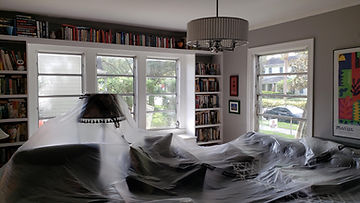
Have some plastic ready to cover their tables, their sofas,their entertainment centers, their beds. Move the end table and the lamp to ensure you don’t knock it over with your backside, and make sure you lay the pictures face down so they don’t fall and break. Protect their stuff. Protect the client. This is your prime mandate. They are paying us. They are our source of income. Our livelihood. They represent shoes on our kids feet. They represent the football practice, bike tires, skating lessons, the schools supplies, and a nice dinner out with that special someone. We will protect our clients.
Contain your work area with plastic. Take some thick plastic and set it up to the ceiling with those special Zip Wall poles
so you can keep the dust contained to that small area. Plastic is your friend. Put plastic down at the base of your work area outside. Keep all of your dust and debris out of their plants. Or do you think they won’t notice?If your plastic moves and you get some paint scrapings in the dirt, clean it up. Don’t ignore it and act like it wasn’t you. It was. The client will appreciate this.
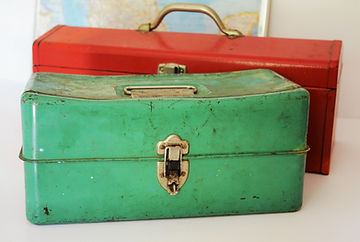
Watch where you put your tools. Were you really going to put that dirty toolbox on their vanity? On their bed? On their entertainment center? On their dresser? Find some other place to put it even if putting your toolbox on their dresser is the most convenient place at the moment. When the client walks in and sees your grungy old toolbox sitting on their dresser (even though it’s got plastic on it), they’re going to judge you. And they’re gonna look at you with that look, even though they may not say anything. They may not say something the first time, or the second time. They might not say anything to you at all when they do say something. When they do say something, they will say something to your superiors. And then your superiors will be embarrassed, and forced to apologize on your behalf and then you’ll really hear about it. This will not be good for you. Do you really want to make your employer have this conversation with you? When it’s you or the client, who do you think they’ll choose?
Roll used plastic and tarps in on itself. At the end of the day, when you’ve completed all that can be completed at your work area, collapse your containment in on itself so that the dust in the containment stays in the containment, and then all the way to the trashcan. It’s also helpful to take a little misting bottle to mist everything down with water before you fold it in. This will help keep the dust down. Fold the plastic that’s on the furniture in on itself the same way you did the big containment. Then get it to the trash can outside without making a mess.
Board up your windows with the plywood if necessary and fold your tarps in on themselves to contain all that nasty dust that accumulated from your work. You might be able to shake them out in the trashcan outside of the client’s house, away from the house, and away from their yard. If there is no place to shake them out at the client’s house in a way that doesn’t make things worse, and take them back to the shop and do it there.
Use the HEPA vac and the Swiffer. You will notice some spots where dust may have accumulated around your work area. Clean them. One of the most important tools that we have in our arsenal is a HEPA vacuum.
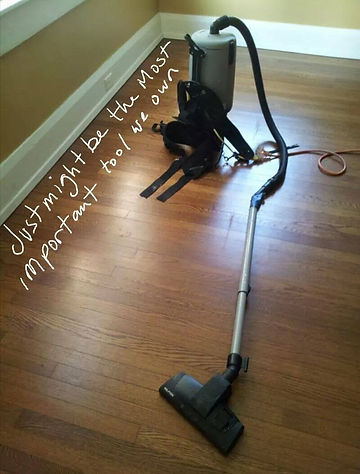
That HEPA vacuum has a attachment called a floor sweeper. Use it. Don’t use a broom unless it’s absolutely necessary, and if you do have to use a broom keep the dust down. After you’re finished vacuuming, use a swiffer pads to mop up the floor around where you’re working.
When you’re done vacuuming the floor, take some of the swiffer pads and dust off any dust that may have accumulated anywhere else in the house on account of your work. Or maybe dust is there from someone else. It doesn’t matter. Clean it. You may have unintentionally put smudges with your dirty hands on their walls, look for those and clean them off. One of the advantages of the swiffer is that it smells good. This nice smell is what you want to leave the client with at the end of the day after their entire house is spotless. That nice swiffer smell has a lot great chance of putting your client at ease and in a good mood, than having to wipe down your dusty work area after you leave. Don’t think they won’t do it, because they will. And when they do, they’ll notice the new scratches on their dining room table that are there from your tool box and judge you for that. Oh, those scratches weren’t from you? Did you take a time stamped picture to prove they were there before you started working? Because it won’t matter if you didn’t put those scratches there. If you leave your work area less than perfect, they are going to look at those scratches, then look at you, then start looking for other things.
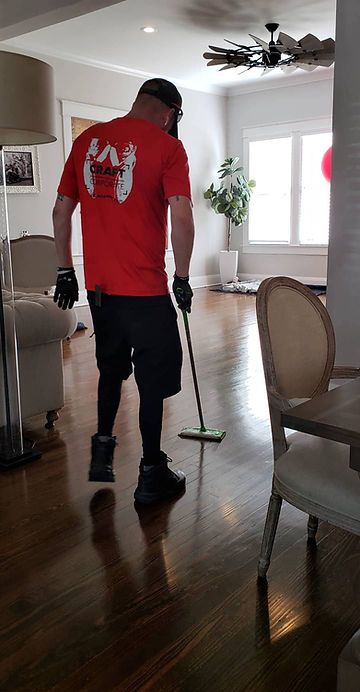
At the end of the day, when you have done what you were supposed to, you’ll be worn out, tired dirty and smelly. This is acceptable, hoped for, and even expected by the client. What kind of worker are you if your appearance hasn’t changed in eight hours? Are they paying you to stand there? Maybe you are the boss and don’t need to get dirty. Better to look like you did something. And what better way to look like you did something than actually doing something? Of course if you can keep yourself from smelling in front of the client, this is better, but at the end of the day at least you have an excuse.
Be the unexpected Artisan. When you parked in the right spot, you did not walk through their grass, protected their front porch, their floors, their walls, their furniture, you worked really, really hard and got a lot done and then cleaned up better than their cleaning people do, they will be proud that you have been at their house, glad that you were on the team and glad they hired you. You have done everything that nobody before you ever did. You’ve done everything that is so unexpected. They won’t be able to help but tell their neighbors about us, about you, about how are you cared for them above and beyond anything they ever expected, or anything we have ever received from the contractors who came before. They were treated as they wanted to be treated, as they were hoping and longing for.
Protect Yourself and the Client by Being Self Aware
At the end of the day you want to know that you have protected yourself and your loved ones from dust, particularly lead dust. Do your work so as to not create for yourself unnecessary work due to negligence or mindlessness. And you want to know you did not bring unnecessary client judgment upon yourself. Judgment on you, equals judgment on the company. If you don’t have the self-awareness to realize when you were bringing judgment on the company, you don’t have the self-awareness to bring success to the company. And if you’re not gonna bring success to the company? And why are you here? The people who are trying to bring success to this company and make sure you don’t stay around very long. After all, we all are trying to build a reputable life for ourselves, reputations that precede us. A good name and a good reputation is better than gold. This is the Artisan Way.

